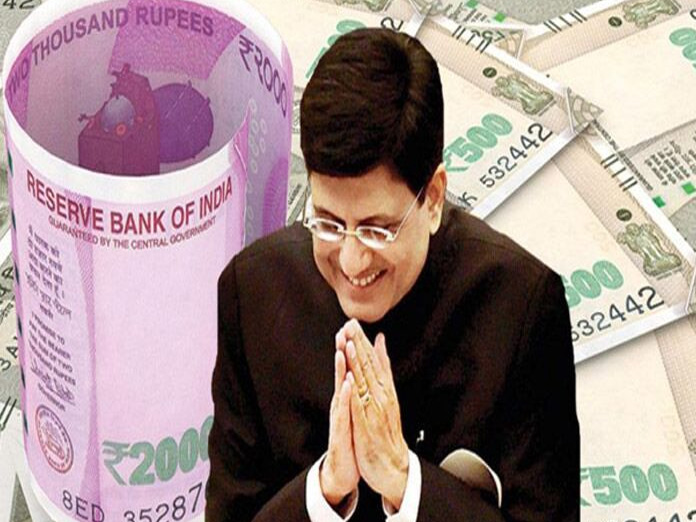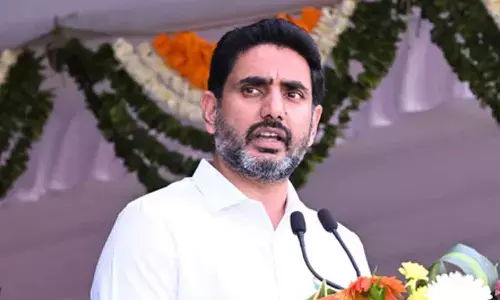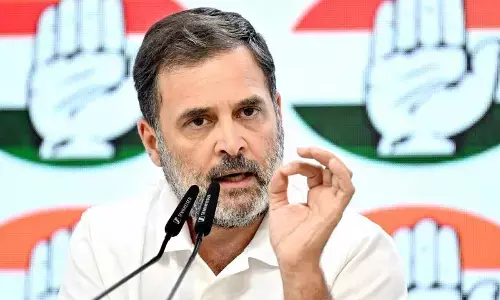Interim Budget: old wine in new bottle?

Deviating from the tradition of presenting only Vote on account, the Government in power has presented almost Full Budget in the name of Interim Budget In the usual practice, Budget reflects the vision and priorities of the Government, coupled with Action Plan After all, a Budget is only a Quantitative expression of the Policies of the Government
Deviating from the tradition of presenting only ‘Vote on account’, the Government in power has presented almost ‘Full Budget’ in the name of Interim Budget. In the usual practice, Budget reflects the vision and priorities of the Government, coupled with Action Plan. After all, a Budget is only a ‘Quantitative expression’ of the Policies of the Government.
It is in this sense, the Budget submitted for 2019-20 clearly envisioned the ‘mindset’ of the Government; whether it is meant to appease the people for the General Elections or to lay foundation for the future endeavour. Leaving aside the controversy as to whether it is appropriate and consistent in presenting an Interim Budget for four months, instead of Vote on Account for three months, one shall examine the efficacy of the proposals.
Viewed from that point of view, the evaluation shall start with the very vision of the Government expressed in the statement that they are moving towards realising a “New India by 2022”, by focusing on both housing, water, electricity and farmers’ income. All the groups like youth and women hitherto neglected, also will be provided with an opportunity to realise the gains of New India.
It is also wished that it would be made free from terrorism, communalism, casteism, corruption and nepotism. It is something like ‘hoping against hope’. In the existence for over seven decades, we are still talking and spending huge amounts on the cleanliness and that is our Mission to create “Swachh Bharat”.
Unfortunately, about one- third of the people do not have proper toilets, water facility and drinking water. As per the information available, India should have become ‘Open Defecation Free (ODF) by February 2019. The target is missed. Similarly, all those diseases which once were claimed to have been driven out like Cholera, Small pox, malaria are recurring year by year.
The availability of a qualified doctor is in the ratio of 1:1.00 lakh. It is axiomatic that health care facilities in the rural side are almost non-existent. The Primary Health Centres (PHCs) being in the domain of “states” is grossly neglected. The Central Government should have imagines a kind of Direct Benefit Transfer(DBT) also for this sector.
Being at the threshold of General elections – 2019, the Central Government has dared to throw the ‘Fiscal Discipline’ to the winds. While it claims to have succeeded on ‘Breaking the back of back-breaking inflation’; it is comfortable in pushing the fiscal deficit target to 3.4 per cent.
As a matter of fact, the fiscal deficit should have been zero by now; if the targets were viewed seriously by the Government. As per the Fiscal Responsibility and Budget Management (FRBM) Act, 2003, the Fiscal Deficit shall get reduced every year at the rate of 0.3 per cent and revenue deficit comes to zero by 2008. None of these have occurred. Whereas the Panel under the Chairmanship of N.K. Singh recommended that the fiscal deficit be cut to 2.8 per cent by 2020-21 and to 2.5 per cent by 2022-23. The analysts have to interpret this as the wish of the Panel; not having any ‘force of implementation’ on the Government.
It is to be understood that the Government is compelled to make a provision for the populist measures with a view to woo the Voters to retain the Power. Proposals of the Finance Minister such as Enhancing the taxable limit to 5.00 lakh; Direct Income support at the rate of Rs.6,000 per year (in three equal installments); Free Electricity connection to every household;
Liberalisation of the New Pension Scheme (NPS) by enhancing the government’s contribution to 14 per cent from the existing 10 per cent and Grant of a monthly assured pension to persons working in the unorganized sector are surely in the direction of ‘doling out syndrome’.
All these years, the Central Government has been criticising the state governments that they are funding to be ‘populist beyond their means’; emphasising that they need to care for the fiscal discipline. With the present Budget, the Centre is also following the footsteps of the States; thus foregoing the ‘authority of command’.
An Interim Budget (which was presumed to be only an Vote on Account Budget) drawing a perspective plan for the next decade is something strange. The target envisioned is that, if voted power again, would convert the country a ‘Five Trillion Dollar Economy’ by next five years and a ‘ Ten Trillion Dollars Economy’ by next eight years. Towards this end, it has unveiled a ‘ten-dimensional vision’, covering all the important sectors of the economy.
As a matter of fact, at the beginning of the present office itself, the Government had declared a ‘transform agenda’ with same ten points. It is not known how this new vision is a deviation from the one already declared and under implementation. Transform, Energize and Clean (TEC) was the major plank of the present Government.
Without an impartial assessment of the gains realised, declaring a ‘New Vision’ would only amount to putting old wine in a ‘New Bottle’. It is the will power and commitment of the Government that shall be viewed as the ‘Hallmark of Development’. Hope that it would march ahead overcoming the failures.
(Prof K Viyyanna Rao - The author is former VC, ANU and presently Director, SEA Group of Institutions, Bangalore)














